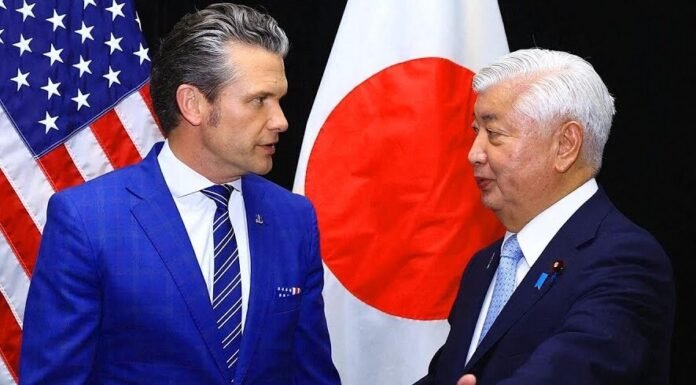China’s defence minister skips Shangri-la dialogue, fuelling tension as the US issues stark Indo-Pacific warning
China’s decision to skip the Shangri-La Dialogue in Singapore has raised fresh concerns over regional stability as US Defence Secretary Pete Hegseth warned that Beijing could imminently use force to assert dominance in the Indo-Pacific.
For the first time since 2019, China failed to send its defence minister to the prestigious annual security forum. Instead, a lower-level delegation attended in place of Defence Minister Dong Jun, whose absence has stirred intense speculation. Amid the diplomatic vacuum, Hegseth dominated the floor, delivering a stark warning that China’s military posture was no longer just provocative—it could soon be actionable.
“It has to be clear to all that Beijing is credibly preparing to potentially use military force to alter the balance of power in the Indo-Pacific,” Hegseth told the gathering of global defence officials on Saturday.
He pointed to China’s growing military exercises near Taiwan and frequent maritime skirmishes in the South China Sea. “There’s no reason to sugar-coat it,” he said. “The threat China poses is real, and it could be imminent.”
Hegseth urged Asian nations to follow Europe’s lead in hiking defence budgets, citing Germany’s pledge to spend 5% of GDP on its military. “It doesn’t make sense for countries in Europe to do that while key allies in Asia spend less on defence in the face of an even more formidable threat,” he added.
The absence of Dong Jun left no room for a bilateral exchange between US and Chinese defence leaders—a diplomatic opportunity that in past years offered a rare platform for face-to-face dialogue. The unexplained no-show comes at a time when tensions between Beijing and Washington are again on the rise, particularly over Taiwan and an intensifying tariff war under President Trump’s administration.
Analysts believe the absence is politically calculated. Dylan Loh of Singapore’s Nanyang Technological University suggested that any off-script remarks by Dong could be seized upon at a sensitive moment in US-China relations. “Why take the risk when US-China relations are so delicate?” Loh posed.
There is also speculation that internal Chinese military politics may have played a role. Dong, who became defence minister in late 2023 following the mysterious removal of Li Shangfu, has faced rumours of being under investigation amid a broader anti-corruption purge in the People’s Liberation Army. China denies these allegations, and Dong has continued to appear publicly.
Ian Chong, a scholar with the Carnegie China research centre, said domestic instability may have left the PLA reluctant to send a high-profile figure. “They perhaps don’t want to—or can’t—send someone senior,” Chong noted.
The Chinese military remained tight-lipped. In a pre-summit press conference, spokesperson Senior Colonel Zhang Xiaogang said China still valued military dialogue with Washington. “China places great importance on US-China military ties, and is open to communication at different levels,” he said.
Nevertheless, the optics of the event painted a picture of Chinese retreat at a time of rising regional friction. Delegates noted that the forum—usually a stage for rival powers to exchange sharp but direct words—was noticeably quieter without a Chinese counterpart to respond to Hegseth.
In past years, Chinese ministers used the platform to counter the US narrative, defend China’s territorial claims, and highlight its regional security vision. This year, with Dong absent and China’s voice muted, Washington’s warnings went unchallenged.
For allies and adversaries alike, the void left by China at Shangri-La is as symbolic as it is strategic. It signals either internal uncertainty or a tactical silence—both of which have only intensified regional anxiety.
